Aug-???
reading quest;

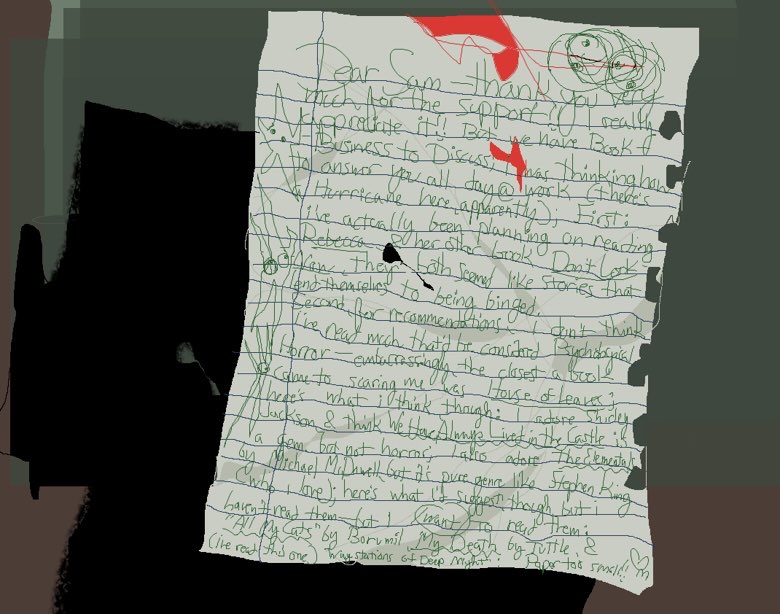
Marabarl reccomended/mentioned these:
>House of Leaves by Mark Z. Danielewski (will tackle later)
>The Elementals by Michael McDowell (will tackle later)
>Waystations of the Deep Night by Marcel Brion (cant find a copy ANYWHERE!)
Not reccomended but mentioned on X:
>Flannery O Connor ( said to be the sothern vers of alice munro) And before I sent the letter, I read Rebecca
by Daphne du Maurier, (reccomended by chatGBT)
126pg 1938 (5/5)

Rebecca is amazing, a novel which touches upon alienation, greif, marriage, ..., I felt as If I could perfectly subsume myself into the mind of the young bride. The only thing which made me upset was that I couldn't give that old hag Mrs. Danvers a whalloping. But then again I could perfectsly understand her, because, I too have been haunted. And it all became so much clearer when we learn that they were both venomous creatures. Brilliant. I was truly on the edge of my seat at the end, and gave L an enthusiastic call afterwords to tell him about the book.
and Too Much Happiness
by Alice Munro (found on mara's X)
392pg 2009 (3/5)
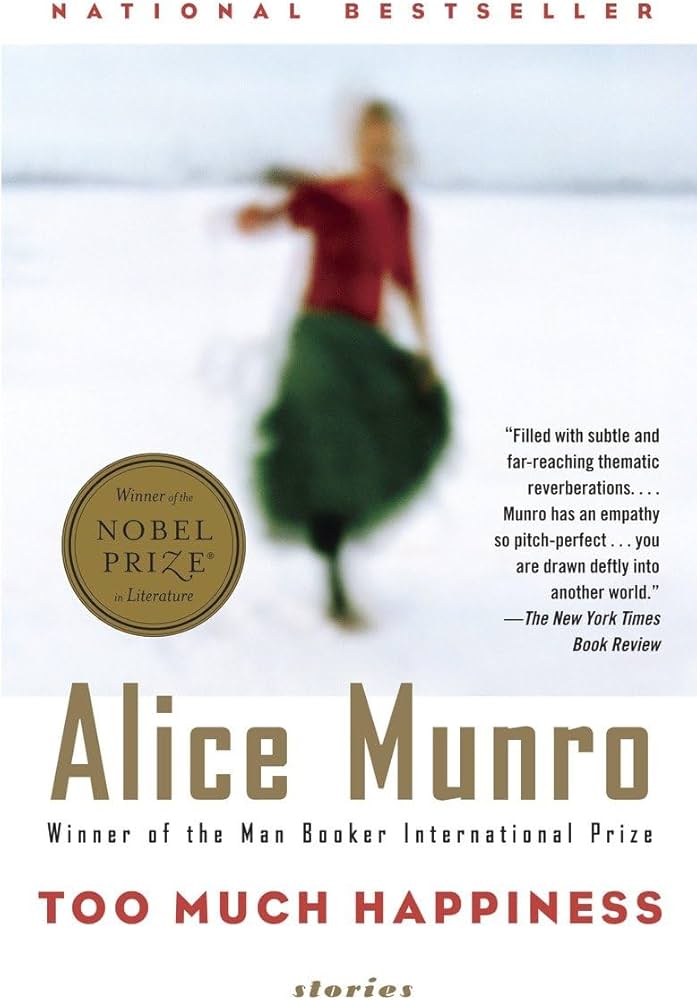
Too Much Happiness had a few good stories and a few bad stories. A lot of them had much suspense and no conclusion which was disappointing at points. After I got past the fifth story or so, I got habituated to the format, and began to enjoy the bite-sized stories more.
Indivivual TMH reveiws:
Dimensions:
I was also a maid once, although never a widow. I like this one because it is bleak and very comfortably lonely.
I would like to read more stories about this kind of character.
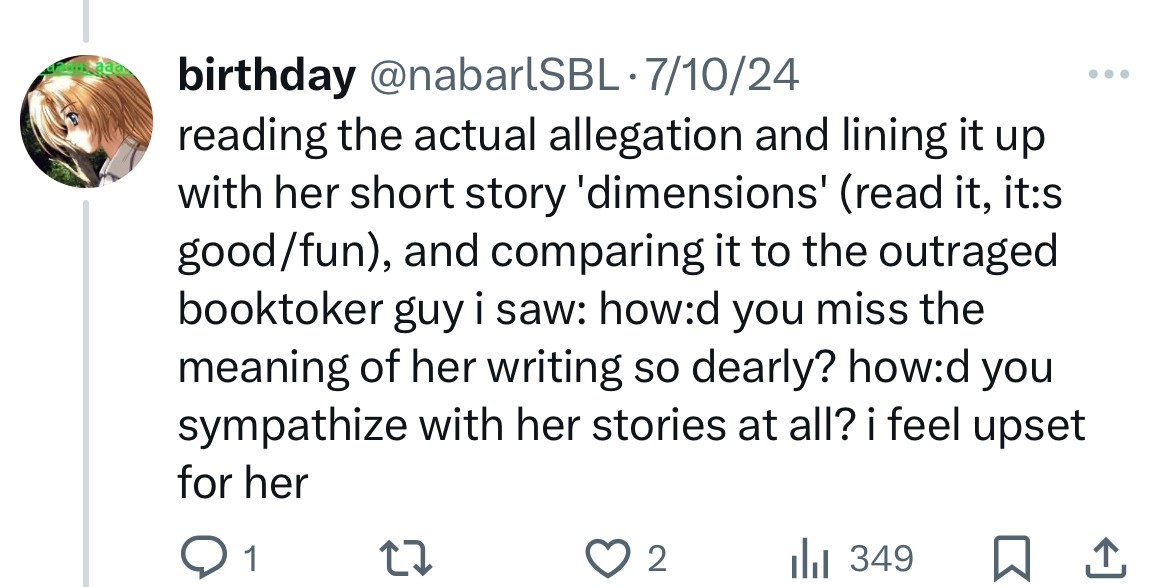 Before the murders I like how
I like how the protag is completely hollow and allows this scumbag to subsume her, until the slightest other opportunity is presented and she forgets about him completely. It’s relatable female psychological torture.
Before the murders I like how
I like how the protag is completely hollow and allows this scumbag to subsume her, until the slightest other opportunity is presented and she forgets about him completely. It’s relatable female psychological torture.
Fiction:
I liked how the characters met young and promised each other that dating around was stupid, then the husband experiences something that I could see myself doing, although not at his age or in my right mind. I could easily see a world where I lived a life as did these characters (either one).
And the bleakness that follows after she is abandoned, it’s interesting. I would be more vengeful in that situation.
I don’t like the ending. It is very suspenseful and non-conclusory.
Weock edge:
This story is the belljar. I hate the belljar.
Deep-holes:
Didn’t like. Nothing-burger and cringey characters.
Free radicals: Liked that there was resolution, liked the characters, liked the intensity. Made me want to read stephen king.
Face:
I lost myself for a moment, in childhood stories. So many stories of people lost at sea in this book.
Some women:
This story feels like the color dark kelly green. Drawn blinds in a musty dark room. Being a kid is complicated and more confusing than any adult can imagine.
I like the commentary of the little girl and the characters are good. It was a subtle story about the often undramatic turbulence of life death and love. I guess.
Child’s play: (5/5)
TOTAL RETARD DEATH! Retards have a sly demoniacal nature. It is only natural that human kind identifies health, and understands that illnesses should be expunged from the population.
It’s made me wish that I had spent time as a child in religious institutions.
(Although with my suicidal atheist redditor upbringing and internet attention span it would have been a disaster, maybe in another life.)
Made me nostalgic for being a camper! What great days those were, even the gloomy sun showers, and especially the swimming.
Great story. A great example of what alice munro is best at in my eyes, realistic experiences.
Wood:
Really beautiful; downtrodden-ness.
I do like how with alice’s stories there is a genuine aspect of suspense in the fact that they could end at any moment, no matter where you are in the story.
It’s a stranded-type story(think kujo), but not for long. For 30 minutes maybe.
Too Much Happiness:
I don't like it. Not short fiction stories that I wanted, go to hell alice munro.
My Death
Lisa Tuttle
80pg 2004 (3/5)
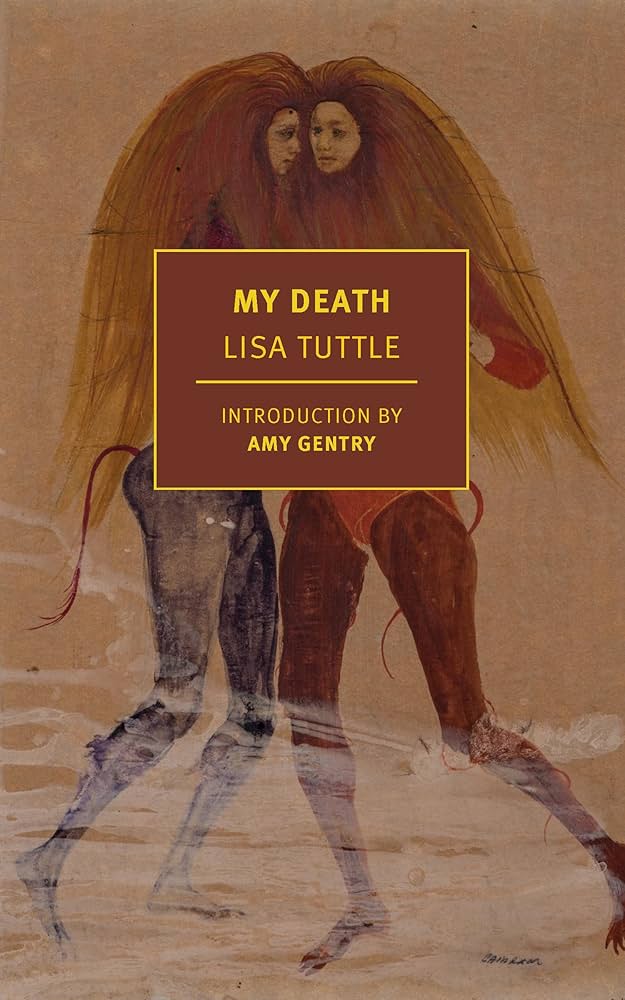
Short novel with a writer protag which is typical for self-indulgent horror authors. It has a really nice twist at the end :3.
I like books based off of myths, which is a big theme here). It has a bit of an errie paranoia to it at one point that I also liked, even though the protag's decision making is annoying at times.
Don't Look Now
Daphne du Maurier
369pg of short stories.
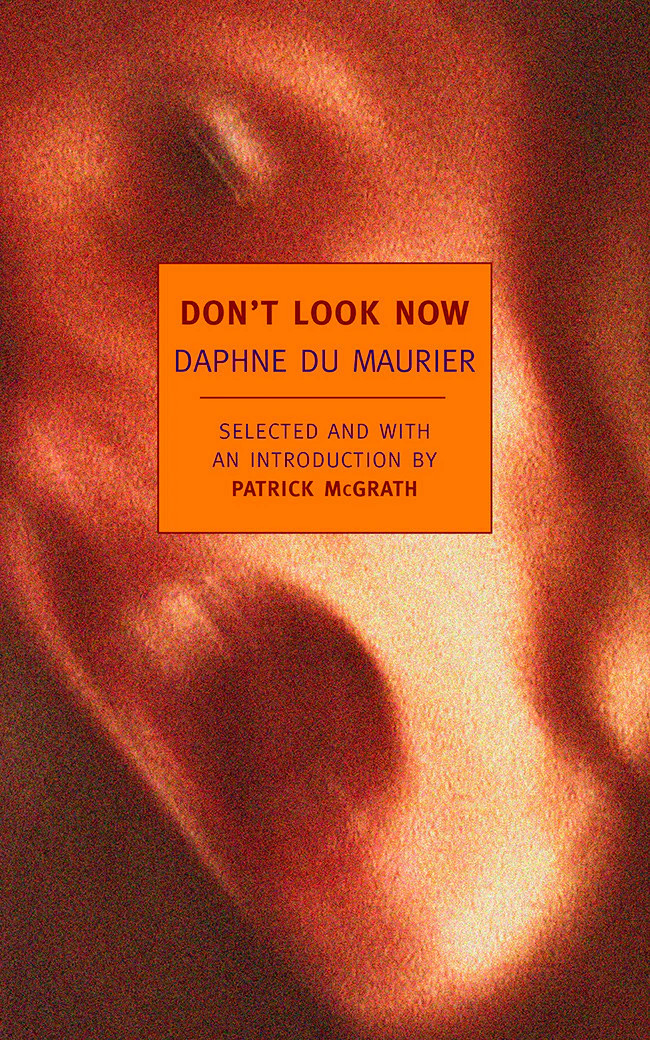
This book, instead of it's vauge unappealing title's in both england and america, obviously should have been dubbed, "never go on vaccation" instead.
I like the way that du Maurier writes her short stories more than alice munro (even though, throughout the first stories, I forgot that I wasn't still reading too much happiness). I dislike Alice's stories because they are always incomplete, and In my opionion it doesn't take much effort to write half of an unresolved plot.
While in contrast, Maurier breathes life into each uniqe life in her stories, and brings you on a thrilling adventure from start to contenting finish. It always feels as if the characters are real people, and that I could have been born as one of them as easily as I was myself. Maurier paints a photorealistic image of a soul, and although only a faccade, each specemin is a resplendently vivid pearl of her imagination.
1. Don't Look Now. (2/5):
Only part of this I liked was the dread and unreality, although the psycik foreshadowing was good, and the charcters in Maurier's stories are always well-written. This story had a better conclusion than #2, but I liked the story less. One point for paranoia (denpa desu ne :3!)
2. Not After Midnight (3/5):
Another vaccation gone wrong. The story follows a sensible and smart man as he grapples with the unruly and unusual geusts whom he has the misfortune of shareing a hotel with. I liked the story a lot and empathized with the main character and his nagging curiosity.
A major pet peeve I have with fiction is when the characters in the story are delibritly menipulated by the author into moving stiffly like marionettes in order to further the plot, maurier mostly avoids this, which is why she is the best.
This story is very well written which almost completely distracts from the unsatasfactory end, because we never fully find out what his "illness" is or what that snorkelling woman's deal is.
3. A Border-line Case (5/5):
The only way I can describe this story which gives it the attention that it deserves, is that I do not have the skill to articulate how well done this story is. Definitly the pearl in this collection, and one worthy of being a well-renound novel of it's own, and to boost, it even appeals to my personal proclivities.
4. The Way of The Cross
I saw many dissapointed reveiws for this title, and although I might just be a contrarian, I found it alright. It would have been gratly improoved if the plot point of the group being in jerusilum related to their ailments at all, through the ill-will of god and whatnot. Nevertheless, the pointless tale does not offend, it seems to share a nature with that hated stephen king tendency to draw up characters and play dolls with them, forgetting all the time that they are supposed to be horror writers, not slice-of-life oc crafters.
Like steinsgate but the charcacters are compitent and there is real plot progression. O.K. but it could have been written by anyone.
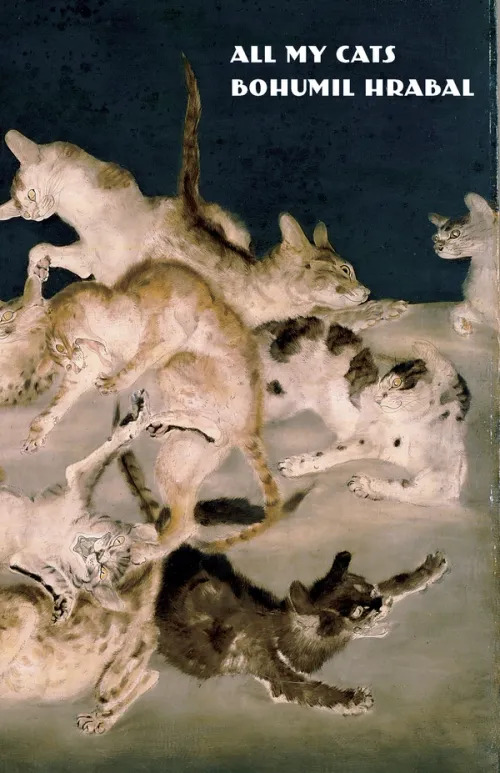


 .
.